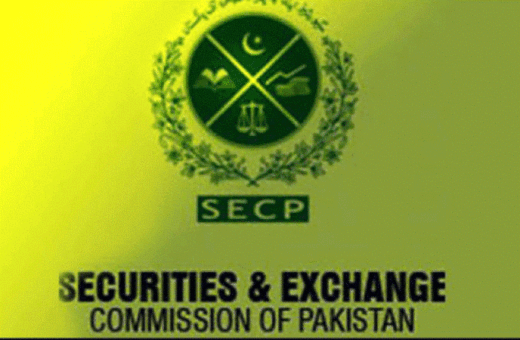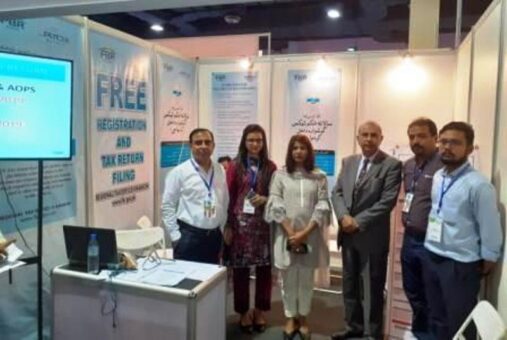ISLAMABAD: The ministry of finance on Wednesday issued 10-year Cash Management & Treasury Single Account Policy with aim to bring every penny into government’s nominated agency.
The policy has been issued with the objective of timely availability of cash to meet obligations, economizing on cash within the government so as to save interest costs and management of government’s cash flows efficiently in a way that benefits debt management, and monitory policy.
“Every penny of the public money shall be reverted to the TSA, within the framework of different authorized accounts of Government in the State Bank of Pakistan (SBP) or its nominated agency and cash therein shall be zero balanced,” the ministry said.
Besides, all the money collected by the public entities as their own revenue and kept in the accounts opened and maintained in the scheduled banks, after specific authorization by the Federal Government, shall be reconciled and reported to the Finance Division by the SBP through its RTGS on daily basis.
The SBP shall devise a regime for availability of this cash for use by the Federal Government and need based disbursement to the relevant public entities. “If any account is opened in a scheduled bank without a specific authorization by the Federal Government, disciplinary proceedings shall be initiated against head of the organization and Principal Accounting Officer concerned under the relevant laws/rules,” the ministry said.
Federal Government shall, however, be empowered to give exception to any organization from the TSA after recommendation by a Committee, which shall be constituted and notified in light of this policy.
This committee shall also propose legal amendments for removal of already granted exceptions and inclusion of new exceptions from the TSA, after due deliberation, for approval of the Federal Government.
The key objectives of the policy are:
1. To ensure availability of cash when it is required
2. To manage cash balance in the government bank accounts effectively by:
a. Borrowing to cover expected cash short falls, and avoid “idle” balances
b. Investing during periods of surplus
c. Minimizing borrowing costs
3. To neutralize impact of the government’s cash flows on the domestic banking sector ensuring that:
a. Therearenolargeandun-expectedchangesinliquidityinthebankingsystem,
b. Overall monetary policy (incl. monetary growth and inflation targets etc.) is not under-mined.
The ministry of finance said that the cash management policy will focus on efficient cash management with ability to forecast daily cash flows across the TSA. “It shall result into smooth cash flows with lower average cash balances, reduced borrowing costs, lower interest on cash balances than interest on marginal borrowing and less pressure on monetary policy operations.”
In spite of this clearly stipulated legal regime, a huge amount of cash is held outside the TSA structure on the arguments including:
I. Statutory Requirement: Different statutes conceive independent funds for the entities created under them consisting of a portion of money from public fund and the rest from other sources;
II. Strategic Requirement: Most of the defence organization and strategic entities transfer the public money into private commercial accounts on the argument of strategic secrecy;
III. Functional Independence: Some public entities take out public money into their private accounts on the argument of functional independence;
IV. Operational Requirement: some public money is transferred into private accounts on the basis of geo-graphical reasons and in-accessibility or remoteness of the treasury and banking facility; and
V. Commercial Operation: Public money invested in to the commercial operations is taken out of the TSA most of the times and treated under a different cash and accounts management regimes governed under special laws/rules.
The ministry highlighted common issues stating that cash held outside TSA is kept in multiple bank accounts with no cash consolidation as the public money.
As a result, the cash position in the public money is affected negatively and most of the times, the cash manager/s of the government is/are forced to raise money, to meet the cash requirements, from the same scheduled banks which are holding its money, most of the times larger the debt raised, into the accounts opened on the above mentioned arguments.
“The government suffers, thus, on two counts, it is unable to utilize its cash and pays interest on the cash which is actually its own lay idle and re-munerated. Moreover, it becomes difficult to establish exact and full cash position of the government, hence it becomes impossible to prioritize and control expenditure disbursements.”
In addition, there are serious issues of accounting, reconciliation, performance monitoring and evaluation.
On the other hands, an effective TSA gives a complete, real time information on government cash resources, enables efficient cash management, helps in preparation of accurate and reliable cash flow forecasts, optimizes the cost of government operations (includes minimizing the volume and cost of government borrowing and lowering liquidity reserve needs) increases the return on excess cash, facilitates efficient collection and payment mechanisms, improves operational and appropriation control during budget execution, enhances efficiency and timeliness of bank reconciliation, facilitates timely and more complete accounting statements/reports, including sources and uses of cash.
The principles under this policy are:
I. Government shall put in place a framework and timeline to ensure unified structure of the TSA as per law and expand it into the major areas of legal exceptions through amendments in the relevant law/rules. It shall ensure maximum fungibility of cash resources in real time;
II. Government shall put in place a legal and institution regime to give exceptions from the TSA;
III. Government shall bring all the public entities into the budgetary, accounting and cash management framework;
IV. Government shall empower the cash manager/s to oversee the cash management operations across the spectrum of budget and its operations;
V. Cash balance in the TSA shall be maintained at a level sufficient to meet daily operational requirements and a linkage between cash management and debt management shall be institutionalized; and
VI. Government shall ensure full consolidation of cash balances of all government entities (budgetary and extra-budgetary) and devise a mechanism daily zero balancing of the TSA and monthly reporting of complete cash balance of the government within and outside the TSA.









